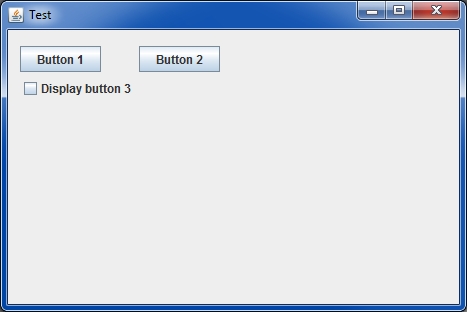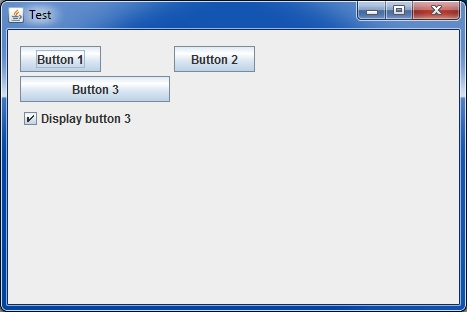Conditional Display : Différence entre versions
De Wiki
| Ligne 1 : | Ligne 1 : | ||
Conditional display is simply managed with « <font color=#FF8C00>if</font> » or « <font color=#FF8C00>switch</font> » and using the <font color=#4169E1>generic()</font> method (or the <font color=#4169E1>display()</font> method for specific treatments): | Conditional display is simply managed with « <font color=#FF8C00>if</font> » or « <font color=#FF8C00>switch</font> » and using the <font color=#4169E1>generic()</font> method (or the <font color=#4169E1>display()</font> method for specific treatments): | ||
| − | < | + | <syntaxhighlight lang="java"> |
public class myPanel extends GPanel { | public class myPanel extends GPanel { | ||
| Ligne 22 : | Ligne 22 : | ||
put(cb); | put(cb); | ||
} | } | ||
| − | </ | + | </syntaxhighlight> |
Version du 2 mai 2017 à 14:16
Conditional display is simply managed with « if » or « switch » and using the generic() method (or the display() method for specific treatments):
public class myPanel extends GPanel { GButton but1; GButton but2; GButton but3; GCheckBox cb; public myPanel() { but1 = new GButton("Bouton 1"); but2 = new GButton("Bouton 2"); but3 = new GButton("Bouton 3"); cb = new GCheckBox("Display button 3"); } public void generic() throws GException { put(but1); put(but2); if ( cb.isSelected() ) { put(but3); } // Easy, isn't it ? put(cb); }

